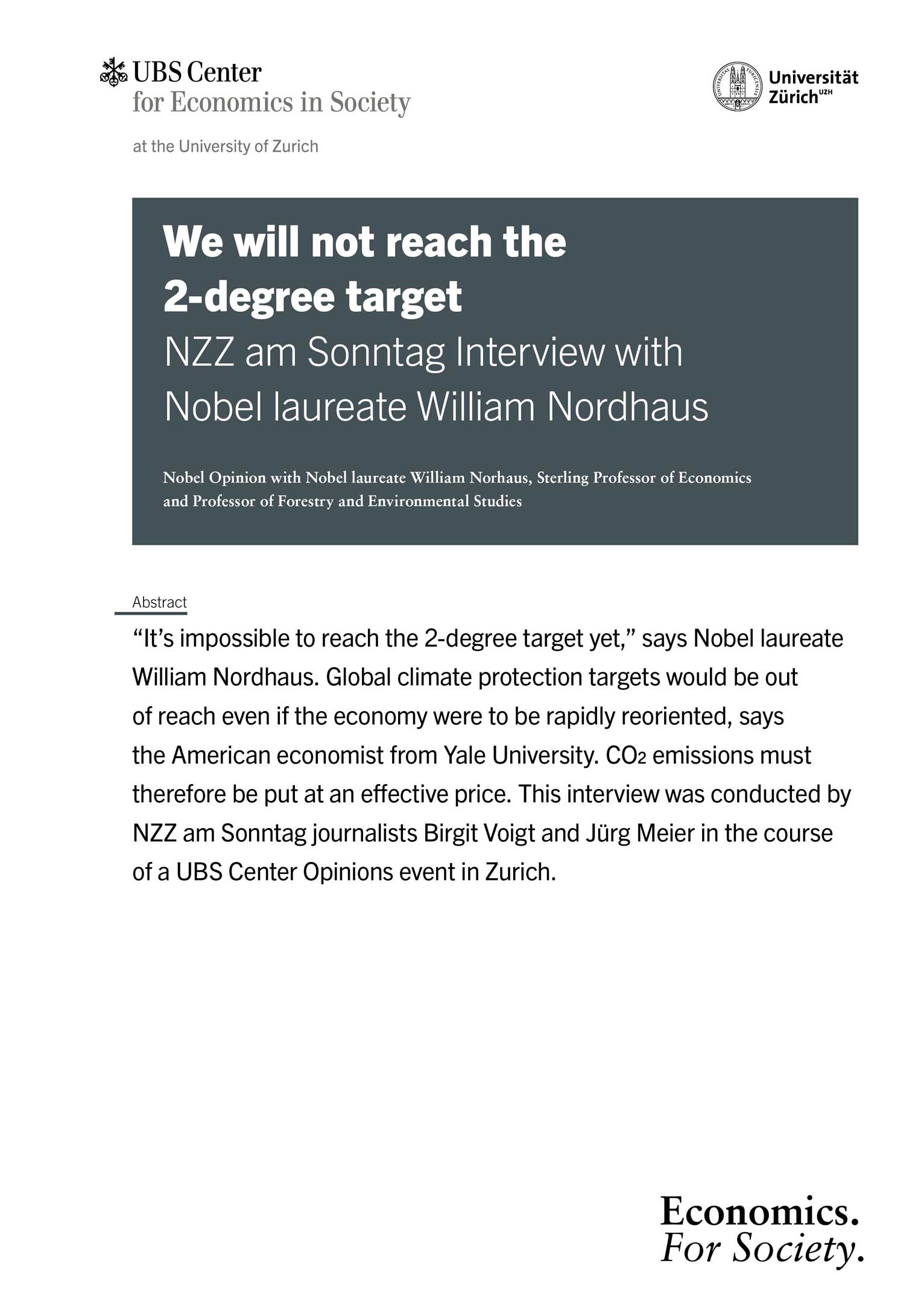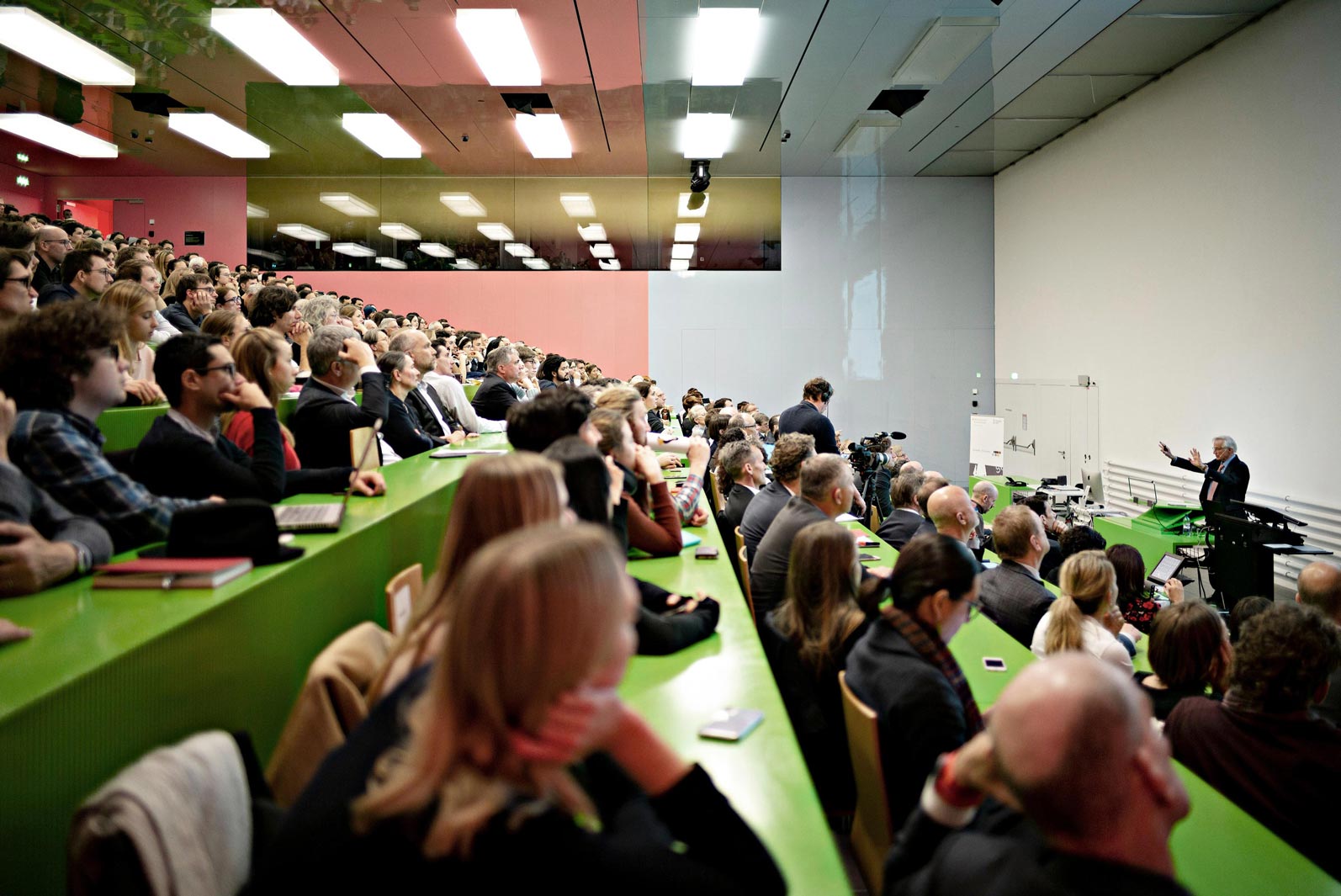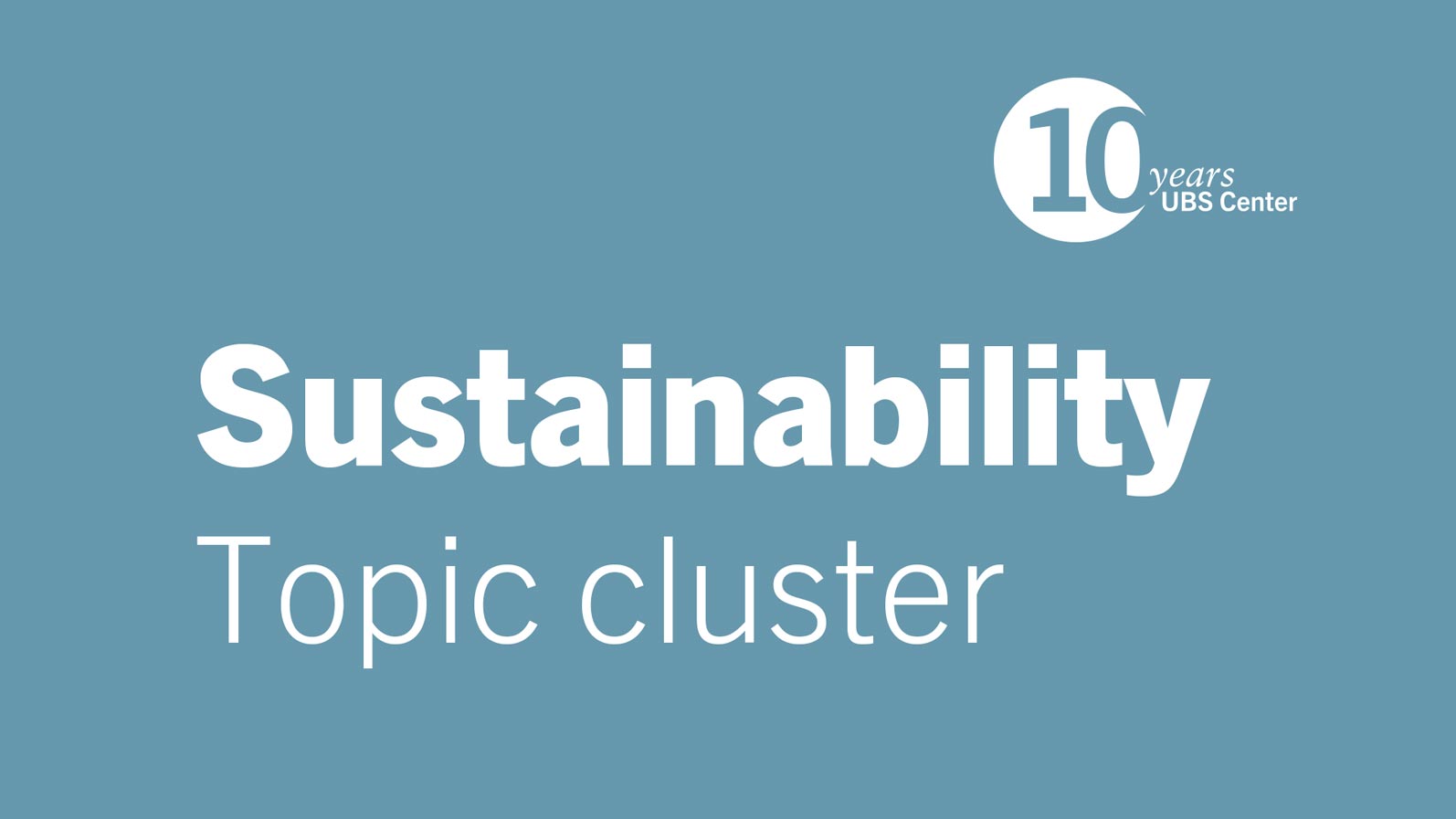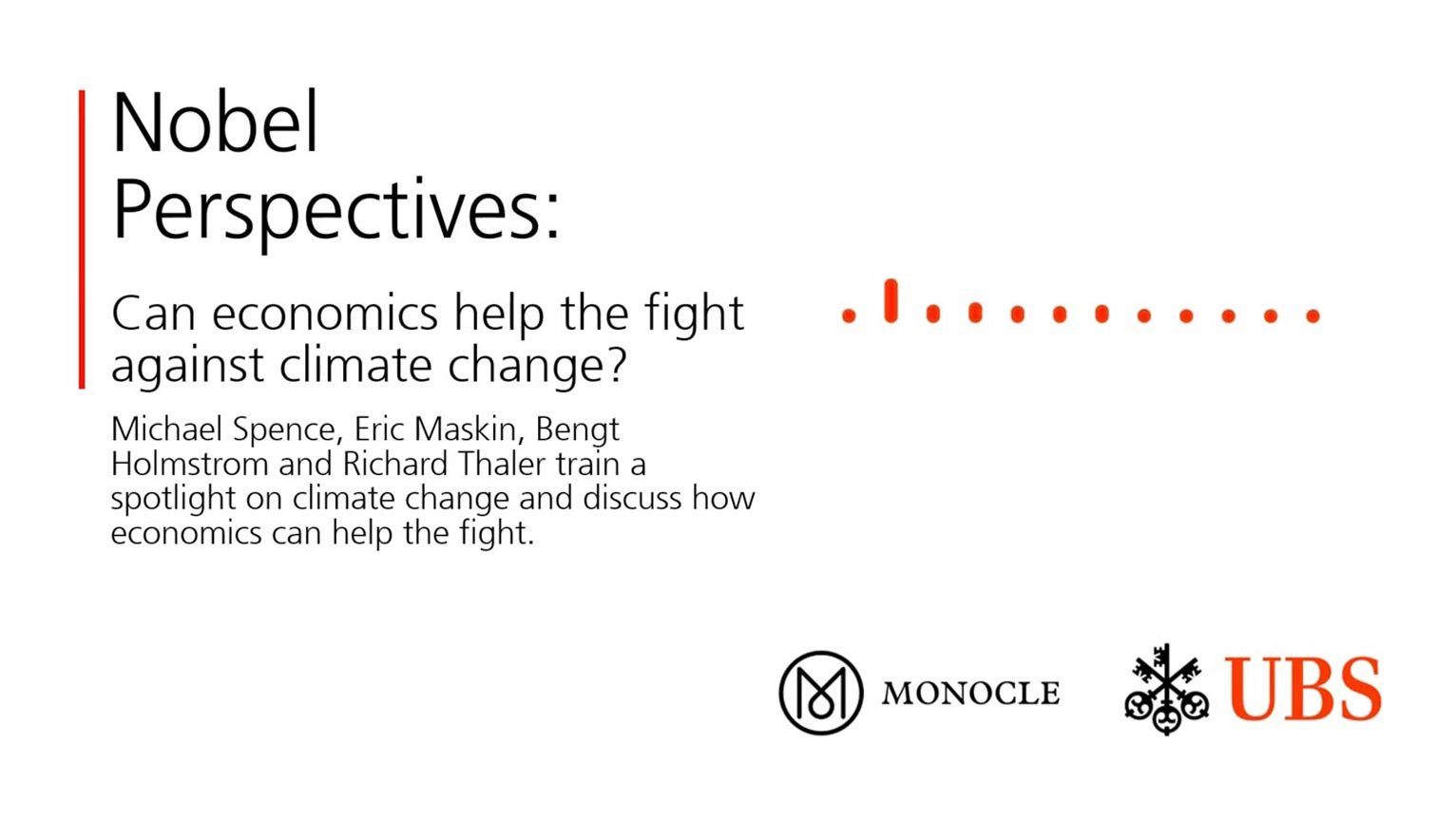We will not reach the 2-degree target
“It's impossible to reach the 2-degree target yet,” says Nobel laureate William Nordhaus. Global climate protection targets would be out of reach even if the economy were to be rapidly reoriented, says the American economist from Yale University. CO2 emissions must therefore be put at an effective price.
This interview was conducted by NZZ am Sonntag journalists Birgit Voigt and Jürg Meier in the course of a UBS Center Opinions event in Zurich.
This summary is part of a compilation of speeches delivered by Nobel laureates at UBS Center events. We invite you to explore our Nobel Opinions and find out more about their research, their vision, and their solutions to address some of the most pressing issues of our time.
“It's impossible to reach the 2-degree target yet,” says Nobel laureate William Nordhaus. Global climate protection targets would be out of reach even if the economy were to be rapidly reoriented, says the American economist from Yale University. CO2 emissions must therefore be put at an effective price.
This interview was conducted by NZZ am Sonntag journalists Birgit Voigt and Jürg Meier in the course of a UBS Center Opinions event in Zurich.

Opinions: The economics of climate change
In his keynote, Professor William Nordhaus combined the interdisciplinary insights from natural sciences and economics to address a set of critical questions. What is the optimal policy to address climate change? What are the costs of climate change? And how will technology and innovation help?
William Nordhaus of Yale University has been awarded the 2018 Nobel Prize in Economic Sciences for ‘integrating climate change into long-run macroeconomic analysis’, jointly with Paul Romer. His pioneering work on climate economy models greatly advanced understanding of the complex interactions between climate change and human economic activities. It provided a sound scientific foundation for climate policy prescriptions discussed in international fora and adopted in many industrial countries since the late 20th century.
In his keynote, Professor William Nordhaus combined the interdisciplinary insights from natural sciences and economics to address a set of critical questions. What is the optimal policy to address climate change? What are the costs of climate change? And how will technology and innovation help?
William Nordhaus of Yale University has been awarded the 2018 Nobel Prize in Economic Sciences for ‘integrating climate change into long-run macroeconomic analysis’, jointly with Paul Romer. His pioneering work on climate economy models greatly advanced understanding of the complex interactions between climate change and human economic activities. It provided a sound scientific foundation for climate policy prescriptions discussed in international fora and adopted in many industrial countries since the late 20th century.

Video
How can we achieve a sustainable economy?
No other topic shows the interrelation of our own environment with global developments as clearly as climate change. Economists of all disciplines agree that climate change is having unprecedented effects on economic and social development and should be one of our top priorities. If we want to sustainably reduce CO2 emissions, globally coordinated measures are needed. The question is, how do we do that? What are the costs of climate change and what are sensible measures in the fight against global warming?
No other topic shows the interrelation of our own environment with global developments as clearly as climate change. Economists of all disciplines agree that climate change is having unprecedented effects on economic and social development and should be one of our top priorities. If we want to sustainably reduce CO2 emissions, globally coordinated measures are needed. The question is, how do we do that? What are the costs of climate change and what are sensible measures in the fight against global warming?

Other Nobel laureates on climate change
Listen to a documentary from The Bulletin with UBS which gathers perspectives from some of the brilliant Nobel Laureates in economic sciences with whom UBS works. Michael Spence, Eric Maskin, Bengt Holmstrom, and Richard Thaler train a spotlight on climate change and discuss how economics can help the fight.
Listen to a documentary from The Bulletin with UBS which gathers perspectives from some of the brilliant Nobel Laureates in economic sciences with whom UBS works. Michael Spence, Eric Maskin, Bengt Holmstrom, and Richard Thaler train a spotlight on climate change and discuss how economics can help the fight.

Speaker
William Nordhaus of Yale University has been awarded the 2018 Nobel Prize in Economic Sciences for ‘integrating climate change into long-run macroeconomic analysis’, jointly with Paul Romer. His pioneering work on climate economy models greatly advanced understanding of the complex interactions between climate change and human economic activities. It provided a sound scientific foundation for climate policy prescriptions discussed in international fora and adopted in many industrial countries since the late 20th century.
William Nordhaus of Yale University has been awarded the 2018 Nobel Prize in Economic Sciences for ‘integrating climate change into long-run macroeconomic analysis’, jointly with Paul Romer. His pioneering work on climate economy models greatly advanced understanding of the complex interactions between climate change and human economic activities. It provided a sound scientific foundation for climate policy prescriptions discussed in international fora and adopted in many industrial countries since the late 20th century.